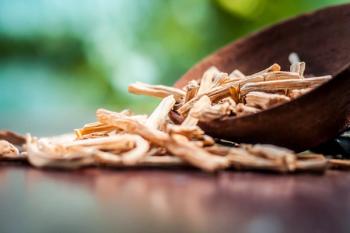
Fucoxanthin Microalgae Ingredient Is Extracted from Unique Algae Strain, Says Algatech
Fucovital is a patented, all-natural 3% fucoxanthin oleoresin ingredient that the company says is the first fucoxanthin to receive New Dietary Ingredient notification (NDIN) acknowledgment from FDA.
Algatechnolgoies Ltd. (Algatech; Kibbutz Ketura, Israel) is launching a new fucoxanthin oleoresin produced and extracted from microalgae in the U.S. and Japan. Fucovital is a patented, all-natural 3% fucoxanthin oleoresin ingredient that the company says is the first fucoxanthin to receive New Dietary Ingredient notification (NDIN) acknowledgment from FDA.
According to Algatech, fucoxanthin is a known antioxidant that may help reduce the risk of obesity-related metabolic syndrome, including in areas of glucose management, inflammation, high triglyceride levels, and liver disorders. The company says that fucoxanthin is typically extracted from harvested seaweed, which only contains about 0.01% fucoxanthin. The extraction process can often be time-consuming and expensive, it adds, and many extraction methods are ineffective. In addition, existing extraction processes are also dependent on the harvest season of edible seaweed, which leads to waste. All of these factors limit the amount of fucoxanthin available on the market and raise the cost of fucoxanthin ingredients, adds the company.
Fucovital, however, is extracted from a unique strain of algae called Phaeodactylum tricornutum, which the company says contains “hundreds of times more concentrated fucoxanthin than seaweed.” Algatech says it has successfully grown and standardized this particular strain of algae in an enclosed, controlled cultivation system that is exposed to natural sunlight. According to the company, Fucovital can thus be cultivated year-round and is not dependent on seasonal fluctuations.
“Fucovital is cultivated in a patented, eco-friendly, closed system, creating a pure, cost-effective new source of fucoxanthin with a consistent high quality,” said Omer Grundman, PhD, Algatech’s Chief R&D biologist and leader of R&D for Fucovital, in a press statement. “Our manufacturing process is completely sustainable, relying on power generated at an adjacent solar farm. The closed-cultivation system is unlike other available products, and has a minimal ecologic footprint.”
Algatech says that while there have been nearly 500 peer-reviewed articles published demonstrating fucoxanthin’s potential antioxidant and anti-inflammatory benefits since 2000, the company will also conduct its own research to further explore its health benefits.
Stated Hagai Stadler, CEO, Algatech, said in the press release: “This launch marks a significant milestone for Algatech and the microalgae industry. Commercialization of new microalgae ingredients is something few companies have achieved. It requires diverse and accomplished research and skills, incorporating marine biology, biotechnology, and organic chemical engineering. We are proud to launch Fucovital, with its complete stability and boosted capacity. And it is just one of series of microalgae ingredients Algatech is planning to launch in the next few years.”
While Fucovital will launch first in the U.S. and in Japan, the company plans to introduce it to other regions in the future.
Also read:
Newsletter
From ingredient science to consumer trends, get the intel you need to stay competitive in the nutrition space—subscribe now to Nutritional Outlook.




